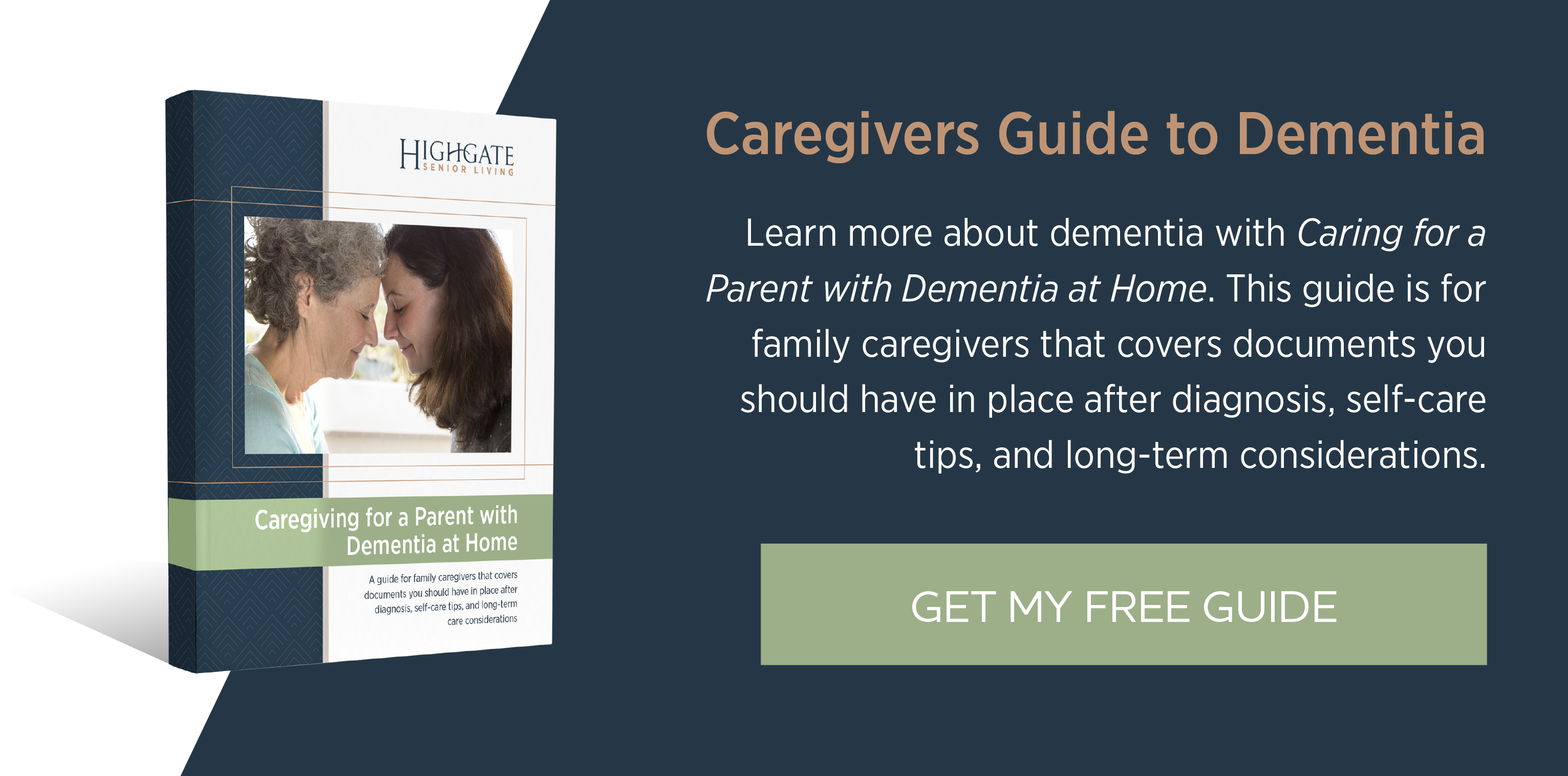
Caregivers suffer from caregiver burnout more than you might think. Especially those caring for someone with a dementia-related diagnosis. Family caregivers who care for those with dementia put in significantly more caregiving hours than those who help loved ones without dementia. In fact, research published in the journal Health Affairs shows that family caregivers spend 100 hours or more a month helping seniors with dementia.
Often called the invisible second patients, family caregivers find themselves with so many responsibilities that they neglect taking good care of themselves. Emotional strain coupled with a change in your own physical health could be a recipe for disaster.
Here are six signs family caregiving for someone with dementia is taking a toll on you.
1. Anxiety
Caregiving can be emotionally and physically taxing. You may worry about what would happen if your loved one needs more care than you can provide. Or, you may be feeling like things are out of your control. This can easily cause you to feel anxious. This can manifest as anger, an impulse to escape, not sleeping, heart palpitations, or the urge to cry. Pay attention to your body’s warning signs that something isn’t right. Try using relaxation techniques to reduce your anxiety like meditation or deep breathing. And if that doesn’t help, consult a doctor.
2. Anger
When it comes to taking care of a loved one with dementia, you may encounter repetitive questions, aggressive behavior, or difficulty following directions. This, at times, can be very frustrating. Couple this with a lack of sleep or a common cold and tempers can run short. If you’re finding yourself angry with your loved one or current situation, it may be time to take a “caregiver time out”. Consider taking advantage of respite care so you can find some time for yourself. You may also find it helpful to learn more about dementia and what you can expect as your loved one’s disease progresses. Better understanding the behaviors and personality changes that often accompany Alzheimer's or dementia can help you better cope with them.
3. Social Withdrawal
Whether because of sleepless nights or days spent trying to convince your mom to take a shower and change her clothes, it can be hard to want to spend time with others when all you want is a good night’s sleep. The longer you are a caregiver, the easier it is to become isolated. Whether friends stop calling because you’re rarely available or you just don’t care about visiting with the neighbors anymore, loneliness and social isolation are indications that you need to get out of the house and involved in something other than caregiving. No one can or should do the job of family caregiving alone. Identify if other siblings can chip in some time to support you. Adult day programs allow you to ensure your loved one receives quality care, as well as social interaction, and allow you to take some much-needed time for yourself. A third option is to hire an in-home caregiver to share some of the caregiving responsibilities.
4. Depression
Watching a loved one change because of a disease like dementia is earth-shattering. One day your dad might not recognize who you are or another your mom might be convinced you’ve stolen money from her. While it’s normal to experience periods of sadness and grief, depression can cause feelings of hopelessness and ultimately make it difficult to be the quality caregiver you strive to be. Not paying attention to your feelings can lead to poor sleep, illness, trouble coping, stress eating, substance abuse, and more. It’s critical that you take care of yourself. Visit your doctor regularly, and talk to your physician if you think you might be depressed. Try to eat well, exercise and get plenty of rest. Find a support group near you so that you can share your thoughts and feelings with others who can relate.
5. Changes in Physical Health
If you can’t remember the last time you felt good, caregiving could be taking a physical toll on your body. Caregivers have an increased risk for cardiovascular problems, lower immunity, slower wound healing, and higher levels of chronic conditions such as diabetes, arthritis, and ulcers. Additionally, caregivers engage less in preventative behaviors, such as exercise, and face a greater likelihood of smoking, drinking alcohol, and developing poor sleep patterns. As a caregiver, you do amazing work caring for others in need. But you also need to think about yourself. Be sure to attend to your own healthcare needs. Don’t push out doctor’s appointments or ignore signs that your body is worn out. Your loved one is depending on you.
Learn more about the resources available to you as a family caregiver.






